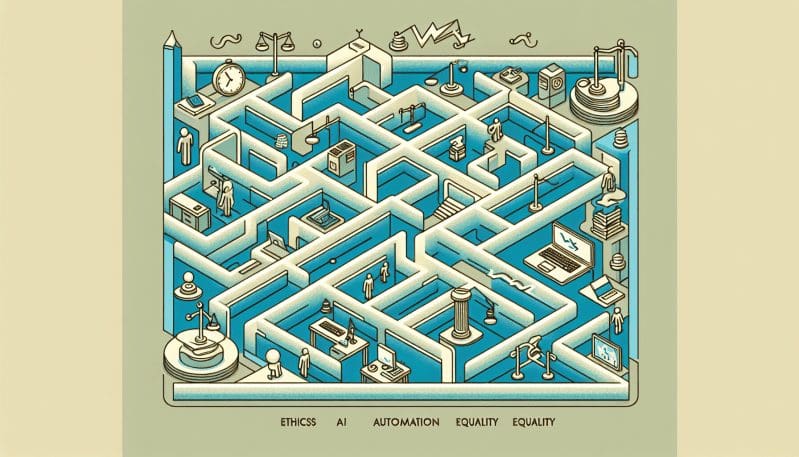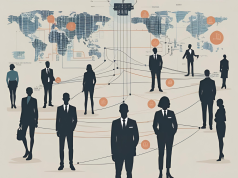In the whirring heart of the modern workplace, Artificial Intelligence (AI) and automation have taken center stage, promising a new era of efficiency and innovation. But beneath the veneer of progress lies a complex ethical labyrinth—one where the paths of technological advancement intersect with the principles of equality and fairness. As AI reshapes the workforce landscape, its implications ricochet through the social strata, highlighting a crucial question: How do we ensure technological growth that supports equitable outcomes for all workers?
AI, with its ability to analyze vast swaths of data and learn from patterns, has the potential to be a great equalizer. It could democratize the recruitment process, eliminate biases, and open opportunities for those previously marginalized. Yet, the flip side of this coin reveals a starkly different narrative—one where automation disproportionately displaces routine jobs, many of which are held by individuals from historically underrepresented groups.
Consider the case of a manufacturing plant that introduced robotic assembly lines: The innovation increased productivity but also led to layoffs among the workforce, many of whom did not possess the skills required to transition into new roles created by this technological shift. Studies have shown that such scenarios are not isolated incidents, and routine, repetitive positions—often filled by workers with less educational attainment—are particularly vulnerable.
This trend raises an alarm about the exacerbation of existing social and economic inequalities, as workers in lower-wage brackets face a perilous journey towards re-skilling and re-employment. Moreover, the demographic impact is undeniable, with minority groups often being overrepresented in roles susceptible to automation.
Yet, if steered with conscientiousness, the very same AI could assist in crafting tailored educational and training programs, facilitating a smoother workforce transition. By harnessing the predictive power of machine learning, employers can identify future skill gaps and proactively invest in the development of their workforce, fostering an environment of lifelong learning.
The call to action is clear: Organizations must navigate this ethical labyrinth with a compass calibrated by equity. This begins with inclusive design thinking, ensuring that AI and automation tools are developed with input from a diverse range of voices and backgrounds, reflecting the multifaceted nature of the workforce. Additionally, ethical AI governance frameworks must be established to oversee the just implementation of these technologies.
But beyond individual corporate responsibility, there is a pressing need for broader societal and policy engagement. This includes legislation that addresses the economic impact of AI and automation, such as safety nets for displaced workers and incentives for companies that prioritize the creation of inclusive and equitable workplaces.
As we stand on the cusp of an automated future, we must challenge the notion that technological progress is an end in itself. Instead, let us harness AI as a means to a more equitable and inclusive workplace, recognizing that the true measure of innovation lies not in the sophistication of our machines, but in the well-being of our workers.
The Work Times is committed to shining a light on these critical discussions, championing the narrative that a future where technology uplifts rather than undermines is not only possible but imperative. It is time to redefine the ethos of the workplace in the age of AI and automation, ensuring that the march of progress leaves no worker behind.



























